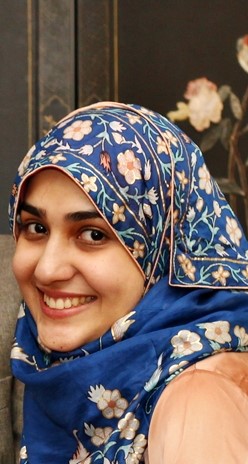
I came to the field of international education with a background in structural engineering and research. My training in STEM enabled me to gain valuable problem-solving skills, asking difficult questions, collecting and analyzing data by employing a diverse array of research methodologies, and designing solutions to complex problems. Through my work on a project on K-12 STEM education at the Earthquake Engineering Research Institute in California, I was steered towards the field of education. Designing and implementing school earthquake safety curriculum across schools in California, I was able to see first-hand how education could spread awareness in young minds regarding safety issues, while also nurturing their interests in STEM topics. The potential for deep and long-term social impact drew me into education and I knew this was my calling. I spent the next year teaching at a private school in San Jose, California, and the experience exposed me to the day-to-day realities of teaching and learning along with the issues associated with it. At the same time, I wanted to learn about issues of equity and justice in education, so I took relevant courses at UC Berkeley, which helped me understand the social construction of institutions and their role in society. These experiences furthered my interests in working in education in Pakistan, my home country, where I believe it holds the key to positive social impact.
I believe that education can unlock the potential of young minds to enable critical thinking, problem-solving, and freedom of thought. Unfortunately, in many parts of the world including Pakistan, it does the opposite. Through a career in education, I hope to enable solutions that move away from obsolete, ineffective, and detrimental pedagogical practices and towards those that are aimed at critical thinking, problem-solving, social-justice, and liberation. Therefore, my goal in joining the IEPA program was to get theoretical and practical training on educational topics with a focus on long-term social impact. The program offered both, and much more, in a short time.
Through rigorous coursework in qualitative and quantitative research methods, theoretical topics in education, and practical skills in education planning, policy, and pedagogical methods, I explored several key themes in international education and gained deeper insights in understanding education and its roles in society from a critical perspective. I also explored the key topic of colonialism and its continued influence on education in Pakistan, which is a major impediment in achieving liberating education. Through my MA paper, I was able to collect qualitative data through semi-structured interviews of students across Pakistan, an experience that trained me in the skills of data collection and analysis while also enabling me to learn from the voices of students across the country. Furthermore, I received thorough and detailed feedback on my writing from my advisors, professors, and peers, which enabled me to grow immensely as a scholar and researcher. At Stanford, I was also able to expand my network of colleagues and meet wonderful people, current and future leaders in education, from across the globe committed to improving the world through education. Through our conversations in and outside of class, I learned from their insights, and they enabled me to approach topics and discourses in education from diverse and unique perspectives.
Through the IEPA program, I gained tangible skills in education planning, policy, and research, skills that I am now using in my new role working in program evaluation at Al-Kisa Foundation.
In the near future, I hope to work as an educator in Pakistan and eventually move into planning and policy where I can help usher large-scale improvements in education quality. To realize my dream of establishing a just education system in Pakistan, I had hoped to learn how to collaborate with diverse groups of stake-holders, approach complex issues through unconventional perspectives, and devise practical solutions to real-world problems. The IEPA program was the perfect place to gain all this training.